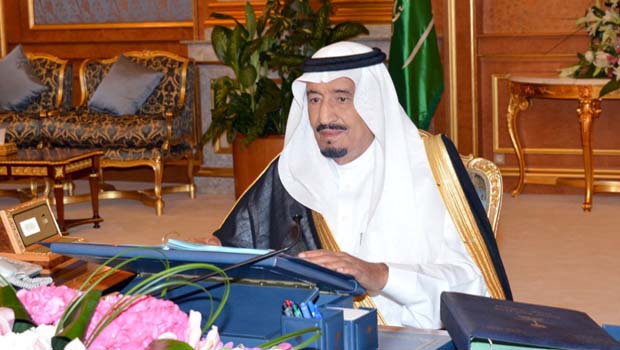
Saudi Crown Prince Salman Bin Abdulaziz chairs a cabinet session in Jeddah on June 16, 2014. (SPA)
Jeddah, Asharq Al-Awsat—Saudi Arabia on Monday said that “sectarian and exclusionary policies” in Iraq over the past three years were behind the recent unrest witnessed in the country.
Crown Prince Salman Bin Abdulaziz Al Saud chaired a cabinet session on Monday at Jeddah’s Al-Salam Palace where ministers were briefed on a number of issues, including the ongoing situation in Iraq.
Speaking following the cabinet session, Saudi Information Minister Abdulaziz Bin Mohieddin Khoja said that Riyadh was extremely concerned about the latest developments in Iraq. “This [the crisis in Iraq] would not have arisen were it not for the sectarian and exclusionary policies practiced in Iraq over the past years, which have threatened its security, stability and sovereignty,” he said.
Saudi Arabia’s cabinet stressed the importance of preserving Iraq’s sovereignty, unity and territorial integrity, rejecting foreign interference in its internal affairs, the Saudi Press Agency (SPA) reported.
The cabinet invited all Iraqi people to begin taking actions to ensure the real participation of all components of Iraqi society in determining the future of the country. Riyadh also called for the swift formation of a national consensus government to work on the restoration of security and stability, stressing that the Iraqi government must avoid policies based on religious and sectarian instigation.
Khoja added: “[The cabinet] stressed the need to exert all efforts to protect civilian lives and reduce their hardships.”
Saudi Arabia’s cabinet also called for “concerted international efforts to counter and combat terrorism,” which Khoja said had “become the most serious challenge facing the international community.”
